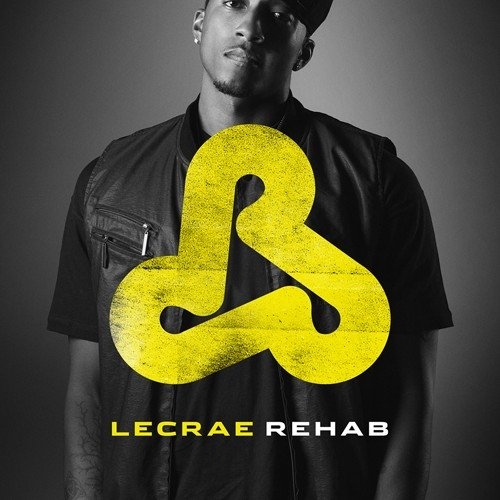Diazepam Addiction Programs Grantham PA
Home
Diazepam Addiction Programs Grantham PA Resources and Information
Diazepam Addiction Programs Grantham PA
It affects people from all walks of life and the road ends up in the same place. Warning signs of prescription drug abuse and addiction In recent years, prescription drug abuse has become an escalating problem, most commonly involving opioid painkillers, anti-anxiety medications, sedatives, and stimulants. And the weaker you get, the more you feed into that energy, and the more it fucks with you. Some programs are less comprehensive and may therefore not be as helpful in helping the person achieve sobriety and avoid relapse.
It has been argued, however, these findings may be attributable to the profound difference in therapist outlook between the two-factor and client-centered approaches, rather than to client-centered techniques per se.[31] The authors note two-factor theory involves stark disapproval of the clients' "irrational behavior" (p. 350); this notably negative outlook could explain the results. It assists in the transition from inpatient rehab treatment to integration back into daily living, clean and sober. 1-800-WORKPLACE (967-5752) – Drug-Free Workplace Drug-free workplace are comprehensive programs run by SAMHSA that mainly focus on preventing the use of illicit street drugs. Residential Care Eating Disorders – Adult If you’re not looking for an Inpatient Rehab Center to help overcome your eating disorder, don’t despair. There are many different Drug Rehab Center centers in Texas. If you are using drugs to fill a void in your life, you’re more at risk of crossing the line from casual drug use to drug abuse and addiction.
Right here are Some More Resources on Hydrococet Addiction Detox Facility

Right here are Some Even more Information on Hydrococet Addiction Detox Facility Grantham PA
To this end, a 1957 study[30] compared the relative effectiveness of three different psychotherapies in treating alcoholics who had been committed to a state hospital for sixty days: a therapy based on two-factor learning theory, client-centered therapy, and psychoanalytic therapy. I work in a group of company … Seeking a meeting for support? I am seeking a Al-Anon meeting to attend to support a person whose husband is abusing prescription drugs. By calling our drug addiction helpline, you can expect to speak with someone who understands your addiction and is committed to getting you the best treatment. If you or a loved one has lost their way and been trapped in the never-ending cycle of drug addiction we are here to assist you.
Extra Resources For Drug Addiction Centers
Your brain remembers these feelings and wants them repeated. The science of addiction is complicated, but the basic idea is fairly straightforward: alcohol appears to wreak havoc on the brain’s natural systems of craving and reward, compromising the functioning of the various neurotransmitters and proteins that create feelings of well-being. Chris Christie: New Day, drug addiction is a disease. Whereas some could be spiritual in their technique, others benefit from common medical methods. Inpatient Medical Drug Detox On admission to one of our exemplary clinics, you will be comprehensively assessed by a qualified doctor, experienced in treating all manner of addictions and co occurring illnesses, such as Anxiety, Depression, PTSD, Eating Disorders and OCD. Check with the facility to see what options may be available.
Here are Some More Info on Oxycontin Rehab Treatment Facility Grantham PA
Curiosity and peer pressure are two of the leading reasons why people experiment with tobacco, alcohol, and drugs. These rehab centers are different, in that the focused, church-based guidance provided is intended to allow for deeper insight and a reconnection with your spiritual path, along with relief from subconscious woes. Alcohol Rehab Group and Family Therapy A multi-faceted approach to chemical dependency offers the best opportunity to help an individual and their family who suffers with the disease of addiction. It’s important to remain calm when confronting your teen, and to only do so when everyone is sober. 1-888-459-5511 – National Drug Rehab Hotline The helpline offers a 24/7 crisis intervention for people besides offering valuable info as well as referrals to drug rehab centers in the locality of the caller. Relapse prevention[edit] An influential cognitive-behavioral approach to addiction recovery and therapy has been Alan Marlatt's (1985) Relapse Prevention approach.[34] Marlatt describes four psychosocial processes relevant to the addiction and relapse processes: self-efficacy, outcome expectancies, attributions of causality, and decision-making processes. The idea of joining a rehabilitation center enhances the ..
Click Here for More Information
Previous Next
You may also like:
Cocaine Rehab Treatment Center Ely IA
Damason-p Rehab Treatment Clinics Sturgis MS
Ambien Addiction Rehab Clinics Elk Creek CA
Di-gesic Rehab Treatment Centers Tokio ND
Orlaam Rehab Treatment Centers Wabasha MN
Oxycodone Rehab Clinics Oak City UT
Opioid Therapy Teaneck NJ
Percodan Addiction Treatment Clinic Sterling Forest NY
Private Rehabilitation Hospital Grady AR
Vicoprofen Addiction Treatment Facilities Pelican AK
Biocodone Detox Clinic Woodbridge VA
Ghb Addiction Treatment Facility Fairfield Bay AR
Ultram Addiction Rehab Programs Fairfield ME
Palladone Abuse Program Erving MA
Oxycontin Addiction Treatment Clinics Barryville NY
Inpatient Drug Treatment Carlisle IA
Avinza Addiction Rehab Centers Pawlet VT
Suboxone Addiction Centers Smithville TN
Dextroamphetamine Addiction Treatment Center Hessel MI
Vivitrol Rehab Treatment Programs Crowley CO